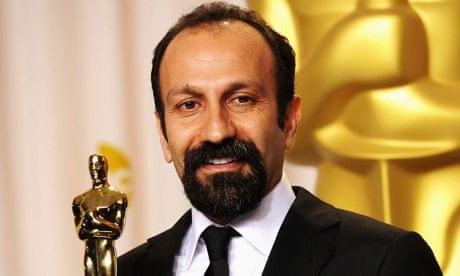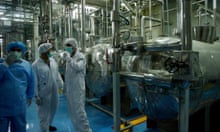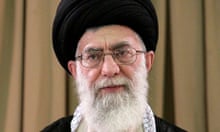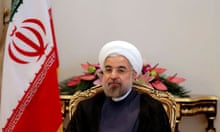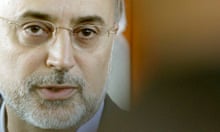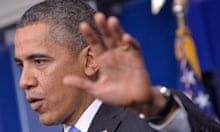Iranian luminaries have joined a campaign calling on the UN secretary-general, Ban Ki-moon, to intervene against the international sanctions that have badly hit the imports of medicine to their country.
The Oscar-winning film-maker Asghar Farhadi and the acclaimed director Abbas Kiarostami are among dozens of prominent Iranians who have participated in the appeal by sending an electronic postcard to Ban in protest at a shortage of medicine in the Islamic republic, one of the unintended consequences of western sanctions.
The leader of Iran's reformist movement, Mohammad Khatami, the painter Aydin Aghdashloo, the economist Saeed Laylaz and the actors Alireza Khamseh and Niki Karimi have also backed the petition.
Although sanctions have not directly targeted medicine imports, a combination of banking and trade restrictions and the plummeting value of Iran's currency mean hundreds of thousands of Iranians with serious illnesses, especially those with cancer and haemophilia, face shortages.
More than 2,600 people have visited the Popular Protest Against Medicine Sanctions on Iran website and sent Ban an electronic postcard. Participants are asked to read a manifesto before signing the petition, and can post a message of up to 70 characters.
"We are fully aware that there is not a single sentence about medicine sanctions against Iran but … sanctions against Iranian banks and having no way to transfer money to and from Iran have created a great deal of difficulties for the imports of medicine to Iran, and it's the people of Iran who are bearing the brunt," the manifesto says.
"Although the United Nations in its millennium [development goals] has obligated itself to provide continuous and cheap access to vital drugs and medication to people in developing countries before 2015, sanctions … have made the imports of medicine to Iran very hard if not impossible."
Touraj Saberivand, an Iranian artist who is the main organiser of the campaign, said he viewed it primarily as an artwork that would allow ordinary people to share their experiences of living under sanctions.
According to Saberivand, an exhibition about the campaign is due to open in Tehran on Wednesday showcasing at least 80 postcards signed by prominent Iranian figures including Farhadi and Kiarostami.
"Sanctions is a hidden war and has widespread effects," he said. "With creating an artwork in the hands of ordinary people through this petition, we want to invite international organisations to reconsider how they view sanctions as a means to impose pressure."
In November, Iran and six world powers sealed a nuclear deal in Geneva under which Tehran will roll back its nuclear programme and accept more scrutiny of its facilities, in exchange for partial relief from sanctions. But banking restrictions, the root of the medicine shortage, remain in force.
The petition addressed to Ban reads: "Each of the people [who have] participated in Popular Protest and signed it are requesting you to use any tools and opportunities available to you, as the secretary-general of United Nations, to stop permanently the continuation of existing sanctions and approval of any new sanctions that causes harm to people's health and life directly or indirectly in any place in this world."
